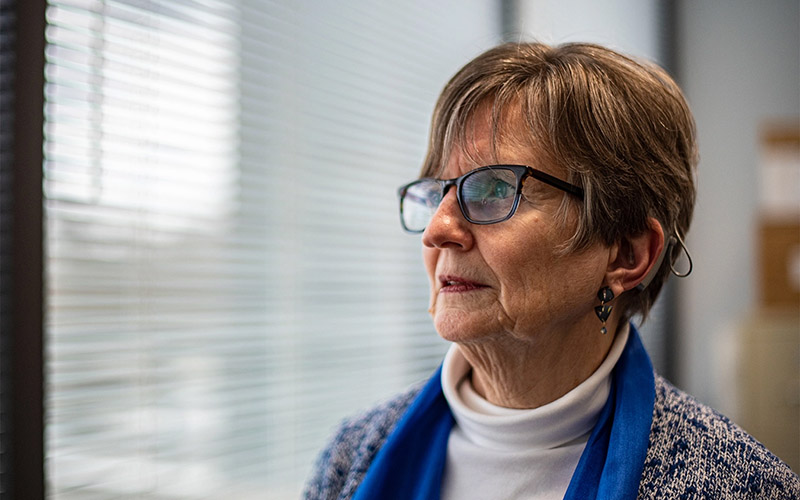From Kaiser Health News —
By LAUREN WEBER —
Goel’s mother stepped in to interpret instead. But her signing is limited, so Goel, who has only some vision, is not sure her mother fully conveyed what the doctors said. Goel worries about the medical ramifications — a wrong medicine or treatment — if something got lost in translation.
“It’s really, really hard to get real information, and so I feel very stuck in my situation,” she signed through an interpreter.
Telemedicine, teleworking, rapid tests, virtual school, and vaccine drive-thrus have become part of Americans’ routines as they enter Year 3 of life amid covid-19. But as innovators have raced to make living in a pandemic world safer, some people with disabilities have been left behind.
Those with a physical disability may find the at-home covid tests that allow reentry into society hard to perform. Those with limited vision may not be able to read the small print on the instructions, while blind people cannot see the results. The American Council of the Blind is engaged in litigation against the two dominant medical testing companies, Labcorp and Quest Diagnostics, over touch-screen check-in kiosks at their testing locations.
Sometimes the obstacles are basic logistics. “If you’re blind or low-vision and you live alone, you don’t have a car,” said Sheila Young, president of the Florida Council of the Blind, pointing to the long lines of cars at drive-thru testing and vaccination sites. “Who can afford an Uber or Lyft to sit in line for three hours?”
One in 4 adults in the U.S. have some sort of disability, according to the Centers for Disease Control and Prevention. Though barriers for the disabled have long existed, the pandemic brings life-or-death stakes to such long-running inequities.
“The only thing that I see is that folks with disabilities are cared for last and are dying first,” said Matthew Dietz, a founding member and the current litigation director of the Disability Independence Group in Florida.
People directly affected by accessibility barriers, especially those living in communal settings or the homebound, often don’t have the time, money, or energy to file legal complaints.
Federal, state, and local governments also violate disability statutes. A KHN investigation last year found that government vaccine registration websites were inaccessible to the blind. Spurred by that story, the Department of Justice reached an agreement with five New York local and state government agencies to correct such issues. The DOJ has since reached settlements with Rite Aid, Hy-Vee, Kroger, and Meijer to ensure accessible registration for vaccination appointments.
Following an outcry from disability advocates, the CDC updated its list of those with increased risk of severe covid to include people with disabilities. And in mid-February, the National Institutes of Health’s Rapid Acceleration of Diagnostics Tech program announced an effort to create accessible at-home covid tests, while the Department of Health and Human Services called on manufacturers to assess at-home covid tests’ operability for those with disabilities.
But as many doctor appointments have shifted online to keep patients safe amid covid surges, the inaccessibility of telemedicine has become more of an issue, said Howard A. Rosenblum, CEO of the National Association of the Deaf. The Americans with Disabilities Act and other disability statutes are being violated, he said, when health care providers do not provide telemedicine technology with captioning or the ability for interpreters to be in the same teleconference.
When Lise Hamlin needed to see her nurse practitioner in the 2020 depths of the pandemic, she was initially thrilled to set up a telemedicine appointment to avoid the risk of covid exposure. Until she realized the virtual visit wouldn’t have captioning.
As a person with hearing loss, Hamlin lip-reads and uses captions to help understand video meetings. The resident of Germantown, Maryland, could barely follow along during the appointment. As director of public policy for the Hearing Loss Association of America, she was enraged. But she was hesitant to do much about it.
“You’re in the middle of a pandemic, how much do you want to alienate your doctor?” she asked.
A small number of health care providers, such as UAB Medicine in Birmingham, Alabama, and MedStar Health in the Washington, D.C., area, do offer interpretive services. Zoom also has a captioning option. But more than 35% of physicians have no idea what their legal responsibilities are to disabled patients under the ADA, according to a Health Affairs article published in January.
“There’s no ADA police,” Hamlin said. “All the burden is on the consumer.”

